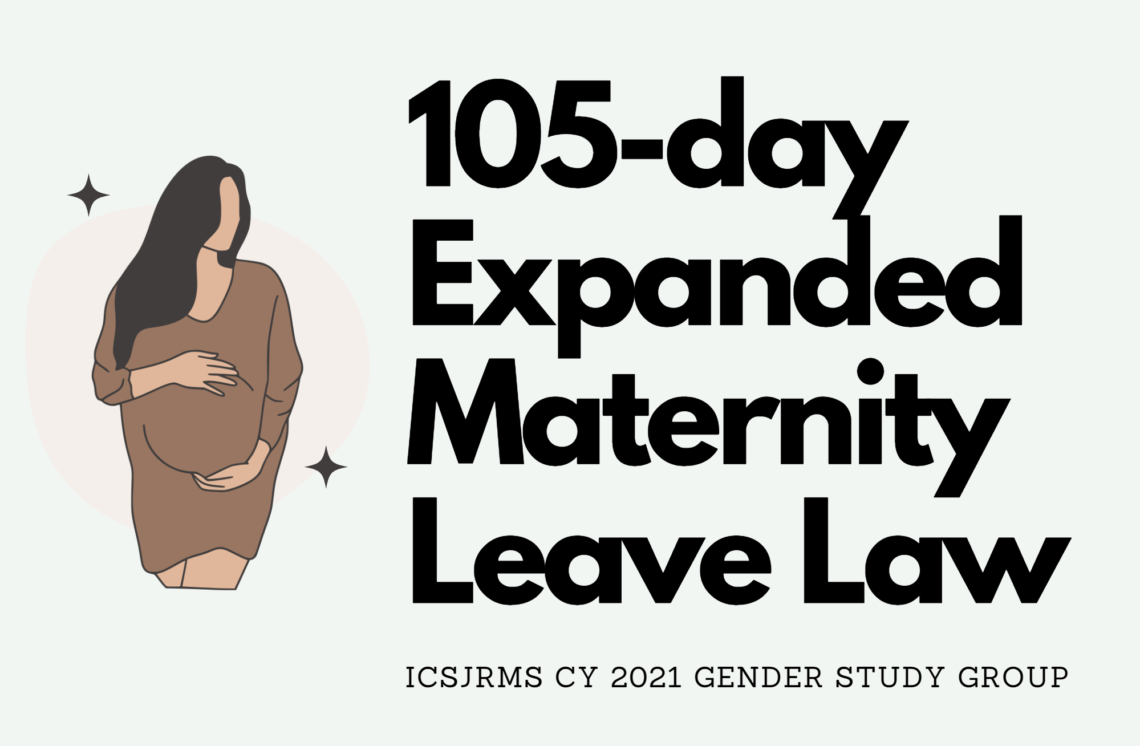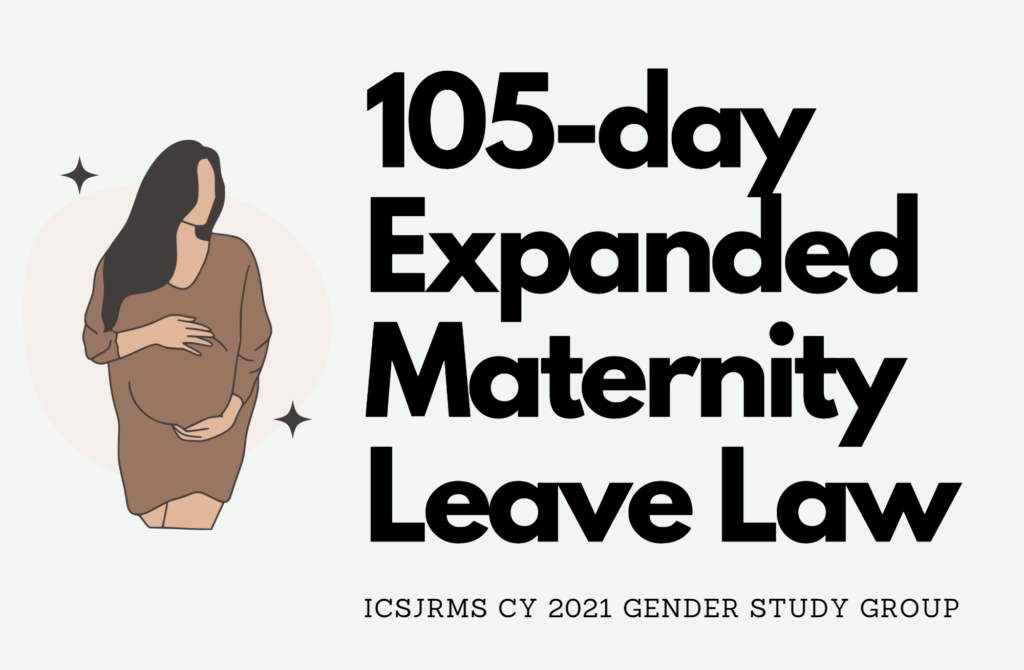
Reaction Paper about the Republic Act No. 11210 The “105-day Expanded Maternity Leave Law”

RA 11210, also known as the Expanded Maternity Leave Law, is a legislation that provides several benefits to all female employees who have given birth. Under this law, they are entitled to 105 days of full maternity benefit, whether it is for a normal delivery or a caesarian section. Additionally, solo parents are eligible to receive 120 days of full maternity benefit. In the past, parents could only avail of this benefit for up to four pregnancies, but now there is no limit to the number of times qualified employees can receive it.
Although I am not yet married, I recognize the importance of this law for mothers, especially for solo parents. First and foremost, they can utilize this period to take care of themselves, their health, and aid in their recovery from childbirth. Furthermore, it allows mothers to allocate their time to the essential needs of their newborns. This law also provides support for them as they return to work after recovering from childbirth, ensuring that they have the financial means to support their families.
Considering that my sisters do not have children yet, this law prepares them with valuable information and benefits they may receive if they become mothers in the future. It is a privilege for me to share this knowledge with them, so they can be aware of such laws and their rights.
I can discern that this law serves as a reminder that family and health are more important than secular work. One of my thoughts is that this law was enacted to strengthen family ties further, guide the upbringing of children, and foster positive relationships within the family. Above all, it emphasizes the value we place on women as mothers.
The Expanded Maternity Leave Law is a significant step towards recognizing the importance of maternal health, family bonding, and the overall well-being of mothers and their children. It reflects the evolving understanding of the crucial role that women play in society, both as caregivers and as contributors to the workforce. By providing longer maternity leave and benefits, the law not only supports mothers but also promotes gender equality and a more family-friendly environment in the workplace.
In addition to mothers, fathers, like my co-workers Larry and Ljubo, also benefit from this law as their wives are eligible for the expanded maternity leave benefits.


The benefits of this law extend beyond the immediate postnatal period. As fathers become more involved in the care of their newborns, they contribute to a more equitable distribution of parental responsibilities and promote gender equality within the family. By having extended time off work, fathers can provide emotional and physical support to their wives, facilitate their recovery, and assist in the overall well-being of the mother and child.
By empowering fathers with the right to take an extended leave, the Expanded Maternity Leave Law promotes a supportive and inclusive work environment that recognizes the importance of work-life balance and family values. It recognizes that the responsibilities of parenthood should be shared between both parents, allowing them to fulfill their roles not only in the workplace but also in their family life.
In conclusion, the Expanded Maternity Leave Law is a commendable piece of legislation that promotes the welfare of mothers and their families. It underscores the significance of prioritizing the health and well-being of women during and after childbirth, while also reinforcing the importance of strong family ties. This law signifies our society’s progress in recognizing and valuing the role of women as mothers.


